Space
Sign up for our newsletter
We summarize the week's scientific breakthroughs every Thursday.
-
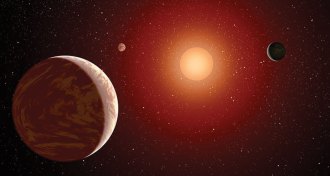 Astronomy
AstronomyFaint red stars can build water worlds drip by drip
Rocky planets around faint red stars have a hard time getting water, but they’re still probably the most common habitable locales in the Milky Way, new computer simulations suggest.
-
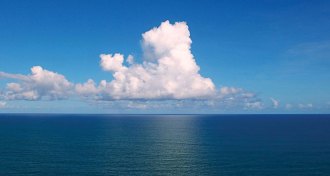 Planetary Science
Planetary ScienceQuest to trace origin of Earth’s water is ‘a complete mess’
Understanding the origin of Earth’s water is hard enough, and it’s made harder by not knowing where all that water is hiding.
-
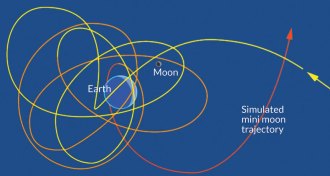 Planetary Science
Planetary ScienceMini moons may zip around Earth
Mini moons may buzz around Earth, and they make great targets for space missions.
-
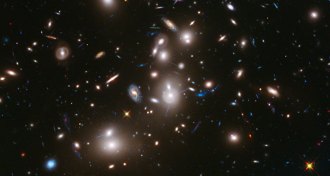 Astronomy
AstronomyCosmic threads may hide some of universe’s missing matter
Half the normal matter in the universe might be hiding in cosmic threads strung between clusters of galaxies.
-
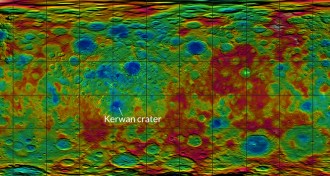 Planetary Science
Planetary ScienceMap of Ceres’ surface shows surprises
Clusters of craters on Ceres and smooth landscapes hint at an unusual past for the dwarf planet.
-
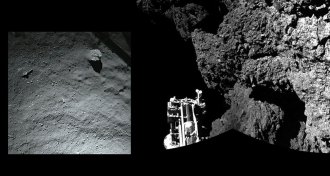 Planetary Science
Planetary ScienceNew results from Philae lander offer first close-up of a comet
Philae’s bouncy journey across comet 67P allowed it to check out two very different sites before taking a detailed look at both the inside and outside of the comet.
-
 Life
LifeEncountering an unexpected Pluto and life’s complexity
Just as genetic analyses are revealing details of life’s long history, the New Horizons probe is bringing the fuzzy surface of Pluto into focus.
By Eva Emerson -
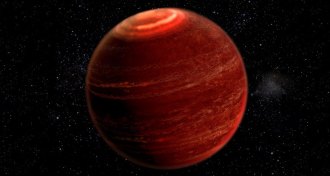 Astronomy
AstronomyDistant star has northern lights–like display
A dim star shows signs of auroral lights, the first detected on a body that’s not a planet or moon.
-
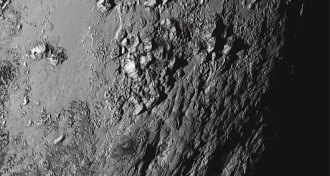 Planetary Science
Planetary SciencePluto’s icy landscape comes into view
The New Horizons flyby reveals varied terrain and evidence of active geology on Pluto.
-
 Planetary Science
Planetary ScienceIce flows, haze offer more clues to Pluto’s geology
New Horizons’ latest data reveal more hints about Pluto’s shrinking atmosphere and possible underground ocean.
-
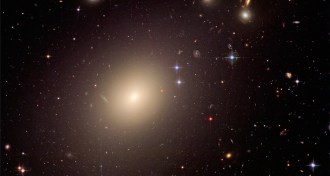 Space
SpaceBest cosmic ‘cradles of life’ may be elliptical in shape
Giant elliptical galaxies might harbor up to 10,000 times as many Earthlike planets than galaxies like the Milky Way.
-
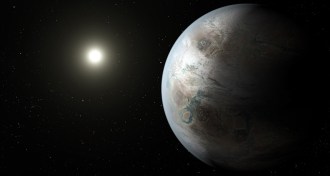 Astronomy
AstronomyKepler telescope identifies new ‘habitable zone’ planet
A new analysis of data from NASA’s Kepler mission has uncovered a planet orbiting a sunlike star that could be Earth’s “cousin.”